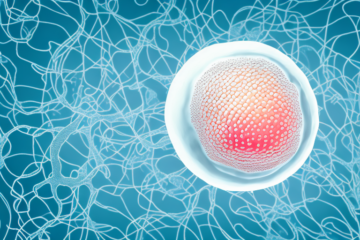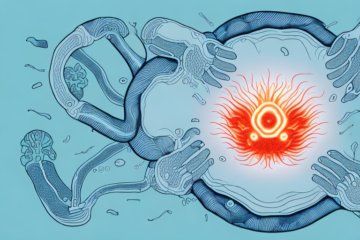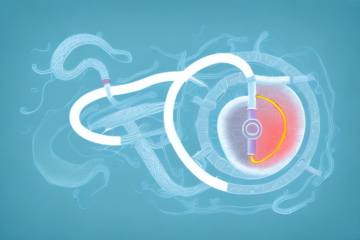Fertility is a critical aspect of human health and plays a crucial role in family-building and reproduction. However, infertility affects millions of couples worldwide, leading to emotional distress and a negative impact on their quality of life. This article aims to provide a detailed understanding of fertility, its causes, symptoms, diagnosis, and treatment options for both men and women.
Understanding Fertility and Infertility
Fertility refers to the ability of a person to conceive and carry a pregnancy to term. In contrast, infertility is the inability to achieve pregnancy after one year of unprotected sex. Both men and women can experience fertility issues, and its prevalence is on the rise. According to estimates, about 10 to 15 percent of couples worldwide struggle with fertility problems.
There are several factors that can contribute to fertility issues, including age, genetics, lifestyle choices, and underlying medical conditions. For women, age is a significant factor, as fertility declines with age due to a decrease in the number and quality of eggs. Men can also experience a decline in fertility as they age, as well as issues with sperm count and quality.
Fortunately, there are several treatments available for couples struggling with infertility, including fertility drugs, assisted reproductive technologies such as in vitro fertilization (IVF), and surgery. It’s important for couples to seek medical advice and support if they are experiencing fertility issues, as early intervention can increase the chances of a successful pregnancy.
The Science of Reproduction: How It Works
Before discussing fertility issues, it is essential to understand how the reproductive system works. In females, the ovaries produce eggs, which travel down the fallopian tubes to meet the sperm. In males, the testes generate sperm that move through the epididymis and vas deferens before ejaculation. During intercourse, the sperm travel through the cervix and uterus to fertilize the egg, which then implants in the uterus. Any interruption or irregularity in this process can lead to infertility.
It is important to note that the reproductive system is not just about producing offspring. Hormones such as estrogen and testosterone play a crucial role in regulating the menstrual cycle, maintaining bone density, and promoting overall health. In addition, the reproductive system can be affected by various factors such as age, lifestyle choices, and medical conditions. Understanding the complexities of the reproductive system can help individuals make informed decisions about their health and fertility.
Factors Affecting Fertility in Men and Women
Various factors can affect fertility in men and women. Age, lifestyle, medical history, genetics, and environmental factors play a role in reproductive health. In males, low sperm count, poor sperm motility, and abnormal sperm shape can cause infertility. In females, hormonal imbalances, ovulation disorders, and uterine or fallopian tube abnormalities can impact fertility.
Age is a significant factor in fertility. As men and women age, their reproductive systems undergo changes that can affect their ability to conceive. Women experience a decline in fertility after the age of 35, while men may experience a decline in sperm quality and quantity as they age.
Lifestyle factors such as smoking, excessive alcohol consumption, and drug use can also impact fertility. These habits can affect hormone levels, sperm and egg quality, and overall reproductive health. Maintaining a healthy diet and exercise routine can help improve fertility in both men and women.
Signs and Symptoms of Infertility in Men and Women
The symptoms of infertility differ between men and women. Men may experience a decrease in libido, erectile dysfunction, or difficulty ejaculating. Women may have irregular periods, pain during intercourse, or abnormal vaginal discharge. However, some people with fertility issues may not experience any symptoms.
It is important to note that infertility can also be caused by underlying medical conditions such as polycystic ovary syndrome (PCOS), endometriosis, or low sperm count. In addition, lifestyle factors such as smoking, excessive alcohol consumption, and obesity can also contribute to infertility in both men and women. Seeking medical advice and making lifestyle changes can help improve fertility and increase the chances of conception.
Medical Tests for Diagnosing Infertility
When a couple experiences fertility problems, they usually undergo a series of tests to determine the cause. For men, a semen analysis can evaluate sperm count, motility, and morphology. Women may undergo a hormone profile, ultrasound, or hysterosalpingography to evaluate the uterus and fallopian tubes’ condition. In some cases, doctors may recommend laparoscopy or genetic testing to identify the cause of infertility.
It is important to note that infertility can also be caused by lifestyle factors such as smoking, excessive alcohol consumption, and obesity. Therefore, doctors may also recommend lifestyle changes such as quitting smoking, reducing alcohol intake, and losing weight to improve fertility. Additionally, stress can also play a role in infertility, and couples may be advised to seek counseling or practice stress-reducing techniques such as yoga or meditation.
Treatment Options for Infertility: Medications, Surgery, and Assisted Reproductive Technologies (ART)
Treatment options for infertility depend on the underlying cause. Medications such as clomiphene or gonadotropins can help stimulate ovulation in women. Surgical procedures can correct abnormalities such as endometriosis or fibroids. ART techniques such as In Vitro Fertilization (IVF) or Intracytoplasmic Sperm Injection (ICSI) can help overcome certain fertility issues, such as low sperm count or blocked fallopian tubes.
Aside from medical treatments, lifestyle changes can also improve fertility. Maintaining a healthy weight, reducing alcohol and caffeine intake, and quitting smoking can all increase the chances of conception. Additionally, alternative therapies such as acupuncture or herbal supplements may also be beneficial for some couples.
It is important to note that infertility can be emotionally and mentally challenging for couples. Seeking support from a therapist or joining a support group can help individuals cope with the stress and anxiety that often accompany infertility treatments.
Natural Remedies for Boosting Fertility: Lifestyle Changes, Diet, and Exercise
In addition to medical treatments, making healthy lifestyle changes can boost fertility. Quitting smoking, reducing alcohol consumption, and avoiding exposure to environmental toxins can improve reproductive health. A nutritious diet that includes fruits, vegetables, whole grains, and lean proteins can enhance fertility. Regular exercise and maintaining a healthy weight can also positively impact fertility.
Another important factor in boosting fertility is managing stress levels. High levels of stress can interfere with ovulation and sperm production. Practicing relaxation techniques such as yoga, meditation, or deep breathing exercises can help reduce stress levels. Additionally, getting enough sleep and taking time for self-care activities can also help manage stress and improve overall reproductive health.
Coping with the Emotional Impact of Infertility: Support Groups and Counseling
Infertility can be psychologically challenging and affect a couple’s mental health. Coping with emotional distress is essential. Couples can seek support from friends and family or join infertility support groups that offer a forum for discussing and sharing experiences. Counseling can also help partners process their feelings and manage stress associated with infertility.
It is important to note that infertility can also impact individuals who are not in a relationship. Single individuals who are struggling with infertility may feel isolated and unsupported. However, there are support groups and counseling services available specifically for individuals who are facing infertility on their own.
In addition to emotional support, there are also practical steps that couples and individuals can take to manage the stress of infertility. This may include seeking out alternative treatments, such as acupuncture or meditation, or taking a break from fertility treatments altogether to focus on self-care and relaxation. It is important to remember that infertility is a complex issue and there is no one-size-fits-all solution. Seeking out a variety of resources and support can help individuals and couples navigate this challenging experience.
Alternative Paths to Parenthood: Adoption, Surrogacy, and Donor Insemination
Alternative paths to parenthood are available to couples who struggle with infertility. Adoption involves taking legal custody of a child who needs a permanent home. Surrogacy involves using a surrogate mother to carry the child. Donor insemination involves using donated sperm or eggs to fertilize the partner’s reproductive cells. These options provide couples with a way to fulfill their desire to become parents.
It is important to note that these alternative paths to parenthood also come with their own unique challenges and considerations. Adoption can be a lengthy and expensive process, and the child may have experienced trauma or have special needs. Surrogacy can also be costly and legally complex, as laws vary by state and country. Donor insemination may raise ethical and emotional concerns for some couples, as they may struggle with the idea of using someone else’s genetic material to conceive a child. It is important for couples to carefully research and consider all options before making a decision.
Preventing Infertility: Tips for Maintaining Reproductive Health
Maintaining good reproductive health can prevent infertility. Taking steps to prevent sexually transmitted infections by using condoms can reduce the risk of infection and subsequent damage to reproductive organs. Regular gynecological examinations, breast exams, and pap smears can detect any underlying abnormalities early. Avoiding exposure to environmental toxins and following a healthy lifestyle can also improve fertility.
In addition to these preventative measures, it is important to understand the impact of age on fertility. As women age, their fertility declines, and the risk of complications during pregnancy increases. It is recommended that women who are considering starting a family speak with their healthcare provider about their reproductive health and any potential risks or concerns.
Fertility Myths vs Facts: Separating Truth from Fiction
Many myths surround fertility and infertility. For instance, position during intercourse, hot tubs, and tight clothing do not cause infertility. In contrast, age is a significant factor affecting fertility. Women’s fertility starts to decline after the age of 35, and the quality of eggs deteriorates. Men also experience a decline in sperm count and quality with age.
Another common myth is that infertility is always caused by the woman. In reality, male infertility is responsible for about 30% of infertility cases. Factors such as low sperm count, poor sperm motility, and abnormal sperm shape can all contribute to male infertility.
It’s also important to note that infertility is not always a permanent condition. In some cases, lifestyle changes or medical treatments can improve fertility. For example, quitting smoking, reducing alcohol consumption, and maintaining a healthy weight can all increase the chances of conception. Fertility treatments such as in vitro fertilization (IVF) and intrauterine insemination (IUI) can also be effective for couples struggling with infertility.
The Role of Age in Fertility and Pregnancy
Age is a crucial factor in fertility and pregnancy. Fertility starts to decline after the age of 35 in women, and the quality of eggs reduces, leading to increased risk of chromosomal abnormalities and miscarriage. Older men also experience a decline in sperm count, motility, and morphology, which can impact fertility. Women over the age of 35 may need additional testing or fertility treatments to conceive.
It is important to note that age not only affects fertility, but also pregnancy outcomes. Women over the age of 35 are at a higher risk of developing gestational diabetes, high blood pressure, and preeclampsia during pregnancy. Additionally, the risk of having a baby with Down syndrome or other chromosomal abnormalities increases with maternal age. It is recommended that women over the age of 35 receive prenatal care from a healthcare provider experienced in managing high-risk pregnancies.
Male Infertility Causes, Symptoms, Diagnosis, and Treatments
Male infertility is a prevalent issue and can result from various factors such as low sperm count, poor sperm motility, and abnormal sperm shape. Symptoms of male infertility may include a decrease in libido, erectile dysfunction, or difficulty ejaculating. Diagnosis involves a semen analysis to evaluate sperm count, motility, and morphology. Treatment options include medications, surgery, and ART.
One of the leading causes of male infertility is varicocele, which is a swelling of the veins that drain the testicle. This condition can cause a decrease in sperm count and quality. Other factors that can contribute to male infertility include hormonal imbalances, genetic disorders, and certain medications.
In some cases, lifestyle changes can also improve male fertility. For example, quitting smoking, reducing alcohol consumption, and maintaining a healthy weight can all have a positive impact on sperm count and quality. Additionally, avoiding exposure to environmental toxins and reducing stress levels can also be beneficial.
Female Infertility Causes, Symptoms, Diagnosis, and Treatments
Female infertility can result from hormonal imbalances, ovulation disorders, uterine or fallopian tube abnormalities, or age-related factors. Symptoms of female infertility may include irregular periods, pain during intercourse, or abnormal vaginal discharge. Diagnosis involves hormone profiling, ultrasound, or hysterosalpingography to evaluate the uterus and fallopian tubes. Treatment options include medications to stimulate ovulation, surgery to correct abnormalities, or ART techniques such as IVF or ICSI.
In conclusion, fertility is an essential aspect of human health, and struggling with infertility can be emotionally and physically challenging. Understanding the causes, symptoms, diagnosis, and treatment options is crucial for couples experiencing fertility problems. Seeking medical care, making healthy lifestyle choices, and using alternative paths to parenthood can help couples build the family they desire.
It is important to note that infertility can also be caused by lifestyle factors such as smoking, excessive alcohol consumption, and obesity. These factors can negatively impact fertility by affecting hormone levels and disrupting ovulation. Making lifestyle changes such as quitting smoking, reducing alcohol intake, and maintaining a healthy weight can improve fertility outcomes. Additionally, seeking emotional support and counseling can help couples cope with the stress and emotional toll of infertility.










